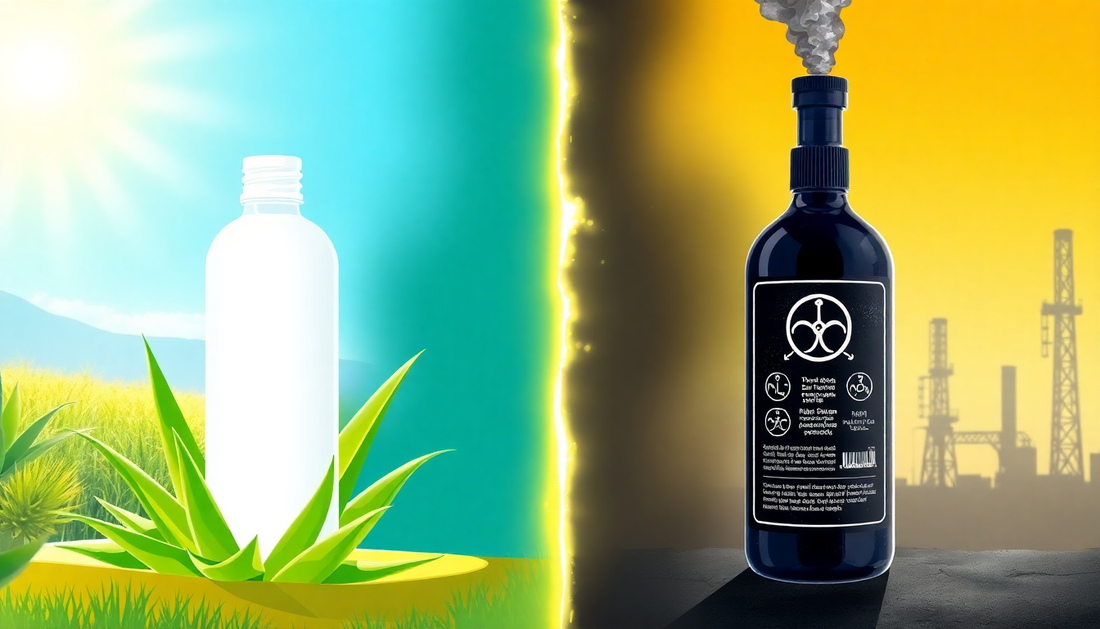
The Science Behind Zero-Chemical Sunscreen and Skin Health
Share
If you're like me, you've probably noticed the growing trend towards "clean" and "natural" skincare products, including mineral-based sunscreens. And for good reason - the science behind zero-chemical sunscreens is pretty fascinating. As the owner of Icarus, a small business dedicated to providing high-quality, zero-chemical mineral sunscreens, I'm excited to share what I've learned about the benefits of this type of sun protection.
First, let's talk about what makes mineral sunscreens different. Unlike their chemical counterparts, which use synthetic compounds to absorb UV rays, mineral sunscreens use natural minerals like zinc oxide and titanium dioxide to physically block and reflect the sun's rays. This means they sit on top of the skin rather than being absorbed, which can be gentler on sensitive skin types.
The key ingredients in mineral sunscreens - zinc oxide and titanium dioxide - have some pretty impressive properties. Zinc oxide, for example, has been shown to have anti-inflammatory and antimicrobial effects, making it great for acne-prone or irritated skin. Titanium dioxide, on the other hand, is a powerful broad-spectrum blocker, protecting against both UVA and UVB rays.
But the benefits of mineral sunscreens go beyond just the active ingredients. Many zero-chemical formulas also contain skin-nourishing ingredients like antioxidants, vitamins, and moisturizers. This can help offset any potential dryness or white cast that some mineral sunscreens are known for.
Of course, the advantages of mineral sunscreens aren't just limited to individual skin health. There's also a growing body of research on the environmental impact of chemical sunscreens, which have been linked to coral reef bleaching and other marine ecosystem damage. Mineral formulas, on the other hand, are generally considered more reef-safe and environmentally friendly.
So, how do you get the most out of your mineral sunscreen? The key is proper application - make sure to apply a generous, even layer and reapply every 2 hours, especially if you're sweating or swimming. And don't forget to pair your sunscreen with other sun-smart habits, like seeking shade and wearing protective clothing.
At the end of the day, choosing a zero-chemical, mineral-based sunscreen is a simple way to take care of your skin and the planet. And with so many great options on the market (like our Icarus line!), there's really no excuse not to make the switch. Your future self will thank you.
The Science Behind Mineral Sunscreens
Mineral sunscreens work differently than their chemical counterparts. Instead of using synthetic compounds to absorb UV rays, they use natural minerals like zinc oxide and titanium dioxide to physically block and reflect the sun's rays. This means they sit on top of the skin rather than being absorbed, which can be gentler on sensitive skin types.
Key Ingredients and Their Benefits
Zinc oxide has been shown to have anti-inflammatory and antimicrobial effects, making it great for acne-prone or irritated skin. Titanium dioxide, on the other hand, is a powerful broad-spectrum blocker, protecting against both UVA and UVB rays.
Many zero-chemical mineral sunscreen formulas also contain skin-nourishing ingredients like antioxidants, vitamins, and moisturizers. This can help offset any potential dryness or white cast that some mineral sunscreens are known for.
Environmental Impact
There's a growing body of research on the environmental impact of chemical sunscreens, which have been linked to coral reef bleaching and other marine ecosystem damage. Mineral formulas, on the other hand, are generally considered more reef-safe and environmentally friendly.
Practical Application
To get the most out of your mineral sunscreen, make sure to apply a generous, even layer and reapply every 2 hours, especially if you're sweating or swimming. And don't forget to pair your sunscreen with other sun-smart habits, like seeking shade and wearing protective clothing.
Conclusion
Choosing a zero-chemical, mineral-based sunscreen is a simple way to take care of your skin and the planet. With so many great options on the market, there's really no excuse not to make the switch. Your future self will thank you.
